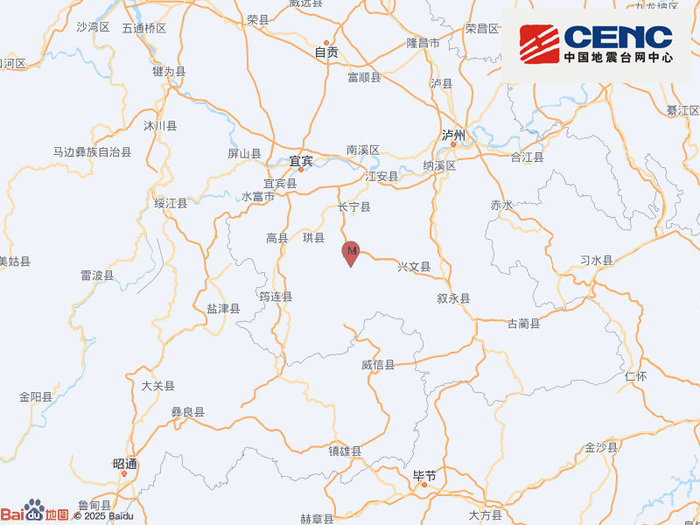CCTV News: On March 1, my country's national public data resource registration platform was launched, which means that public data in all fields and levels will accelerate the flow. When it comes to public data, don’t feel unfamiliar. What is the temperature today and the air quality is, these are public data; how much water and electricity a community uses are also public data; even if it is large, it is public data. With this platform, it is like sending an "id card" to every public data. Finding data and products nationwide can be as convenient as online shopping. Enterprises and institutions can not only query data resources, but also publish requirements in the future to achieve accurate matching. Today's "Special Focus" focuses on the national public data resource registration platform and how to break through "data barriers".
"National One Account" registers data like registering land
From gas, water and electricity data in daily life to medical data, education data, meteorological data, etc., public data involves all aspects. Why register these public data? How to speed up data flow through registration? CCTV reporters from the Central Station conducted an exclusive interview with relevant persons in charge of the National Data Bureau.
At the beginning of this year, my country's policy system for the development and utilization of public data resources was initially formed. It is clearly stated that professional forces can be introduced to manage and process public data, thereby forming corresponding data products and services. This innovative model has a new term called "public data authorized operation". Under this model, party and government organs and public institutions that directly hold or manage public data resources must register public data like registering land and other factor resources.
Chen Ronghui, member of the Party Leadership Group and Deputy Director of the National Data Bureau, said that any public data resource products that have been authorized and planned to operate must be registered on this platform. Just like a library that needs to catalog books, data resource registration is also a process of gradually cataloging public data resources across the country, and ultimately forming a "national account" for public data resources.
In addition to understanding the "family foundation" of public data resources across the country, registration can also accelerate the development and utilization of public data resources. Zhang Xianghong, member of the National Data Expert Advisory Committee, introduced that as the scale of platform registration continues to expand, it will definitely expand rapidly in the application of public data, the security governance of public data, and the general public data will be further released.
The "neighbors" join hands. More than 22 billion medical insurance data are the first to be "invested"
There is a Yuetan North Street in Xicheng District, Beijing. On this street, the National Data Bureau and the National Medical Insurance Bureau are a pair of "neighbors". On March 1, with the launch of the National Public Data Resources Registration Platform, the "neighbor department" also took hands, and the National Health Insurance Administration became the first central department to register on the platform.
The reporter saw at the National Medical Insurance Administration that the medical insurance data registered this time are traceability data of medical insurance drugs. Through traceability data of drug production, circulation and sales, you can understand the "past and present" of each box of drugs. When this data comes to the platform, a public data resource directory will first be formed.
Take the medical insurance drug traceability data registered this time as an example. Once an institution in need obtains this data through the platform, it can release the value of this data in different application scenarios. For example, regulatory authorities can use medical insurance drug traceability data to more efficiently discover illegal behaviors such as returning drugs, changing medicines, and fake drugs; for example, pharmaceutical companies can better promote the research and development of new drugs by making good use of medical insurance drug traceability data, and further optimize sales strategies.
The reporter learned from the National Data Bureau that on the first day of the platform's launch, except for the National Medical Insurance Bureau, the government departments, public institutions and related enterprises that came to register were relatively active. Local institutions such as Beijing Big Data Center have also registered a series of public data on social security, real estate, patents, government procurement, etc. on the platform.
Public data is widely used in areas such as urban governance financial services. Carrying out public data resource registration is an institutional innovation in my country's efforts to develop and utilize public data well. So, what are the specific application areas of public data? Let’s learn about it together.
"Public Data + Urban Transportation" optimizes the configuration of signal lights by integrating public transportation data, which reduces the urban congestion rate; "Public Data + Housekeeping Service" collects data from human resources and social security, health and other departments, allowing consumers to verify the social security, physical examination and other information of housekeeping personnel; "Public Data + Financial Service" uses data from market supervision, tax and other departments to provide financial institutions with enterprise information inquiry and risk assessment tools, helping financial institutions to "dare to lend, be willing to lend, be able to lend, and know how to lend."
Data shows that at present, my country has many effective data sets open in the fields of urban governance, financial services, etc., followed by transportation, modern agriculture and other fields. In addition, the data shows that data sets such as bus stops, routes, timetables, population and economic indicators, basic information data of schools (kindergarten, primary schools, junior high schools, etc.), enterprise/self-employed registration information data, etc., are all at the forefront of downloads, indicating that the demand for data in these aspects is relatively strong. Experts believe that in the future, some public data in the fields of road traffic, meteorology and other fields will further unleash potential.


